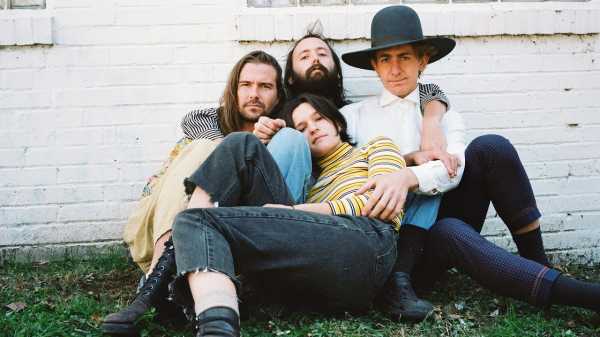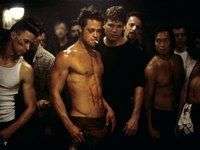
Ten years ago, a week after I graduated from college, I bought a white Jeep off Craigslist that was older than I was. It cost eight hundred dollars, which was less than the price of a plane ticket plus the fee for shipping my things home, to Texas, from Virginia. I was supposed to pick up the Jeep in an apple orchard in the Shenandoah Valley. Thinking of some secondhand advice I’d heard about men and vehicular transactions, I asked my friend Walt, a Ph.D. student, to come with me. We left Charlottesville in his car, on an oppressively lush summer day, and the back roads were strange and dappled; sunlight knifed through the trees in shards. Some spell came over us as we drove, even though everything was so ordinary that we hardly had anything to say. That long afternoon—and a few other handfuls of time like it, all of them moments of chance existential intimacy—is filed in the back of my mind as proof of something that I can’t put my finger on. And I think about it almost every time I listen to the band Big Thief.
Big Thief was formed in Brooklyn, but none of its members lives there. They live mostly on the road, touring for up to ten months at a time. Onstage, they move like an organism without a center, as if they’ve got in-ear microphones that allow them to hear one another thinking. They wear T-shirts and worn denim, and they give off a day-three-of-a-camping-trip vibe, playing folkish indie rock that sounds like something you’d chance upon while you had no cell service.
Big Thief still has a small following, relatively speaking. When they were putting their first album together, around four years ago, the lead singer, Adrianne Lenker, waited tables, and the guitarist, Buck Meek, worked as a bike messenger. But, after releasing four albums in three years—including two of them, “U.F.O.F.” and “Two Hands,” in the past seven months—the band has come into startling focus. In October, Big Thief played a sold-out show at Brooklyn Steel, which has a capacity of about eighteen hundred people, and then two nights at the nearby Music Hall of Williamsburg, which holds about six hundred and fifty. At Brooklyn Steel, Lenker marvelled at the novel experience of having someone help tune her guitars. The crowd swayed in the dark, with hardly any cell phones held up to record.
Lenker has a buzz cut; her voice is plaintive and nervy. She was born in Indiana, on a Christian commune. Her parents met there but left when Lenker was four, having realized that the group they’d joined was a cult. The family drove around the Midwest in a blue van, searching and recovering. When she was six, Lenker started playing the guitar. In an interview with Pitchfork, she recalled the lyrics to the first song she ever wrote, at the age of eight. It was about sadness and pressure: “The pile of things I got to do stacks up to the sun. I’m angry at the world. I just want this feeling to be gone.” Her parents divorced, and her father started acting as her manager: she recorded two pop albums in her early teens, and then, at sixteen, distanced herself from her father. She got her G.E.D. and then a scholarship to Berklee School of Music, in Boston. She started there in 2008.
Four years later, after graduation, she moved to New York without a job or a place to live. She found both on her first day in the city, then stopped into a bodega and saw someone she thought she recognized. It was Meek—she’d played a show with him once in Boston. They started hanging out every day, and then performing wherever they could—at Prospect Park, on subway platforms. They recorded a couple of EPs together and travelled around the country, touring in a van they’d named Bonnie. (They were briefly married but have since divorced.) Lenker told NPR that she felt, back then, that she’d already accomplished what she wanted. They weren’t “seeking out a sparkly career,” she said; they just wanted “to basically do what we are doing.” She described the comfort of making popcorn for dinner in the van late at night. “We didn’t need anything else,” she said. “I felt rich.”
They met two other Berklee alums—Max Oleartchik, a bassist who grew up in Tel Aviv, and James Krivchenia, a drummer from Chicago—back in Brooklyn and formed Big Thief. They recorded their first album, the unseriously titled but very earnest “Masterpiece,” which was released by Saddle Creek in 2016. On the cover was a photograph of Lenker’s mother, young and pretty, looking at a plastic toy. The songs are anchored in the warm, wiry texture of Lenker and Meek’s intertwining guitars; they sound like a memory of summer. The band was working in an intense and haphazard way that has come to be characteristic: by the time “Masterpiece” came out, they’d already recorded a follow-up album, “Capacity,” during a winter month spent house-sitting a friend’s farm and recording studio in upstate New York.
MORE FROM
Cultural Comment

The Firing of Don Cherry, Hockey’s Self-Appointed Gatekeeper

Daniel Sloss’s “X,” a Laddish Comic’s Reckoning with #MeToo

Martin Scorsese’s Radical Attack on Marvel Movies

Rudy Giuliani and the Butt-Dialler Within All of Us

The Men Who Still Love “Fight Club”

The Ham-Handed, Money-Driven Mangling of Sports Illustrated and Deadspin
“Capacity” came out in 2017. On the cover was another old photo, this time of Lenker’s uncle as a teen-ager, holding Lenker when she was an infant. Lenker’s lyrics tend to be hyper-specific and biographical, and they are often dense with pain and conflict. “Mythological Beauty” tells the story of a railroad spike falling out of a tree house and almost killing Lenker when she was five years old. But the songs have a peculiar way of emptying out for the listener and functioning as fluctuating, vacant frames. “Shark Smile,” a catchy, coffee-shop classic, is about two lovers on a road trip. In its third verse, one of the lovers is impaled in a sudden crash; the meaning of the chorus shifts—“And she said woo, baby, take me / And I said woo, baby, take me, too”—but Lenker keeps it light, holding the song open, making it enigmatic and general. The effect recalls Joseph Cornell’s shadow boxes: objects on plain display accrue a sense of mystery. On the piano-backed folk song “Mary,” Lenker recalls a friendship in lyrics that seem almost old-fashioned and yet also abstract in the manner of Gertrude Stein. Listening to it feels like watching Lenker pull yards of ribbon out of her own mouth for five and a half minutes. If you’re alone and going through something, there’s a good chance that it’ll make you cry.
This spring, Big Thief put out “U.F.O.F.,” which the band had recorded in rural Washington, with their usual producer, Andrew Sarlo. It is stranger and wilder than their previous albums. The drums feel summoned out of nowhere, and Lenker’s lyrics loosen and drift. On the title track, she sings about seasons bending, a map changing color, a “U.F.O. friend” sailing “like a seed in the wind.” In “Cattails,” Lenker sketches her great-grandmother Violet in brief, mystical images: a “meteor shower at a motel,” a silver-haired woman in a lawn chair, in the middle of a river, “leaving here soon and you know where.” Lenker wrote it overnight, in Washington, and played it for the band the next morning. As she practiced, accompanied by Krivchenia, she tried to remember all the lyrics; the band’s engineer, Dom Monks, was secretly recording. The version of “Cattails” on the album is one of the first times that the song was ever played.
Not everything on the album was captured so spontaneously. Sometimes the production is intricate: for “Jenni,” Meek created distortion by striking a guitar that he had hung on a rope from the ceiling of a barn and had surrounded with amplifiers. The album feels alive and abundant, like it’s imperceptibly growing. A few days after the band finished it, they flew to El Paso and recorded another album, “Two Hands,” at a studio in nearby Tornillo, in just a handful of takes and with few overdubs. It suggests sinew where “U.F.O.F.” conjures stars. “Two Hands” crescendos, in the middle, to a one-two knockout: there’s the pleading, shuddering “Shoulders,” followed by “Not,” a gradual exorcism that’s one of the best rock songs of the year.
Shortly after the release of “Two Hands,” Big Thief briefly and unexpectedly became a subject of online debate. Music journalism—like nearly all journalism that is mostly unrelated to Donald Trump—is in a state of attenuation and crisis. Among the dwindling number of people who are paid to devote their attention to indie-rock bands, a significant proportion seem eager to wax alarmingly lyrical, as I have, about Big Thief. (Pitchfork, one of the few remaining central institutions of music criticism, has given raves to the band’s past three albums; its review of “U.F.O.F.” invoked deep ecology and Rachel Carson’s “Silent Spring.”) There was a backlash. “This B*g Th*ef thing is the emperor’s new clothes of 2019 rock, don’t even think of @-ing me,” the pop-music editor at the New York Times, Caryn Ganz, tweeted. A wave swept over Twitter—plenty of people agreed that there was nothing there to see, or hear.
I liked this reaction, strangely. It didn’t seem at odds with the way I feel about the band’s music, the brilliance of which comes with no obvious pyrotechnics and no grand statements; it is contained within a resolute sense of the everyday. The moments in my life that Big Thief reminds me of feel both definitive and commonplace, and so vanishing that I’d never think to speak of them out loud. At the Brooklyn Steel show, Lenker kept returning to the basic absurdities of expression and continuance. “It’s been a ride, right?” she said. “Just being alive?” A crew member in a black T-shirt scurried out of the stage lights, and Lenker remarked again on how nice it was to have help with her guitar. “It’s like when you’re stoned, and you say that you’re stoned—you’re getting help with the guitar, and you’re, like, ‘Damn, I’m getting help with the guitar,’ ” she said, sweetly and sheepishly. “But I’ve come to realize it’s actually all right to mention the things that are going on inside.” The band started playing again. At the end of the show, Lenker looked at the crowd for a long moment, and said, “I wish us all a great rest of our lives.”
Sourse: newyorker.com



